
My dog, Chaco, turns 15 years old next week. I know there is a popular notion that dog years are actually measured in multiples of human years so that relatively speaking, 15 is akin to a Methusaleh experience. Personally, 15 is a long enough time as it is; I don’t need to multiply him by anything in order to appreciate how much I love him.
15 years ago, I was a 25 year old man with a Masters from Harvard and not a pot to piss in. No, really, I lived in a 9 ft. trailer in the middle of the New Mexican desert. I had no electricity, no heat and well, no toilet. Studying with shamans has historically never been a cake walk so I didn’t expect much regarding accommodations.
As the warmer breezes of spring rolled through the valley I drove to the local post office of the nearest town to send a letter ( remember the post office? ). There was a big red pick-up truck in the parking lot with big, fluffy, yapping, yellow puppies in the bed. The owner explained that “their bitch had been knocked up again by that damned Shepherd” and they simply couldn’t afford to feed the puppies anymore. The next step was death by drowning. Drowning?!?
 It is said that we choose our relationships and our teachers choose us. The little, scrawny runt sat trembling at the back of the truck and peed a good sized puddle the second I looked at him. “I’ll take the little pisser, please.”
It is said that we choose our relationships and our teachers choose us. The little, scrawny runt sat trembling at the back of the truck and peed a good sized puddle the second I looked at him. “I’ll take the little pisser, please.”
Chaco was not named for his chocolate dark complexion as many have assumed through the years. He was named for Chaco Canyon, the center of the turquoise trade in the Americas one thousand years ago and the namesake of the ancestors that would become today’s Navajo Nation.
He was afraid of his own shadow. He cried for weeks and screamed bloody murder every time I tried to pick his little body up and cradle him in my arms. Folks were convinced I was beating him due to the terrible noises he evoked on a regular basis. It took six months for a vet to realize he had a urinary tract infection that was beyond infected.
Chaco has now spent the better part of fifteen tremendous years with me and as an old timer with a fairly relaxed urethra, he has taken up peeing freely again. Living in a home with an incontinent canine has its challenges, especially now that we live upstairs in a brick building in one of the largest cities in the country. At the same time, there is something very familiar about the dynamic I am experiencing with my dear old dog.
The impulse to get irritated, frustrated and resentful each time the floor is wet or another rug is sent to be laundered is a mindful reminder about what it means to commit to another being. Maybe I chose the peeing runt who trembled at the back of the truck because I like challenges. Maybe, I figured he was the least likely to get adopted before being tossed into the river. Then again, maybe, just maybe, Chaco chose me because I had some things to learn and he was just the one to teach me.


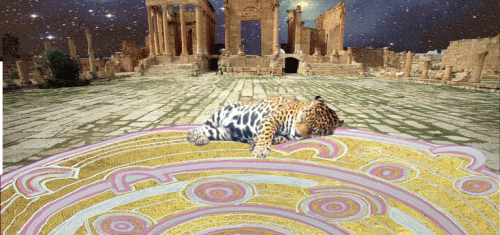


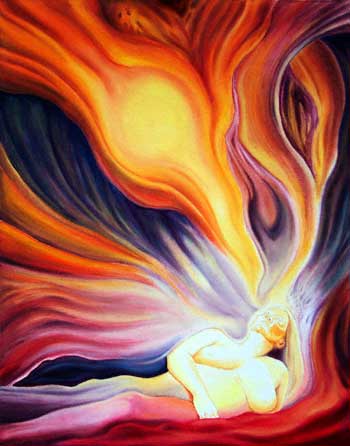
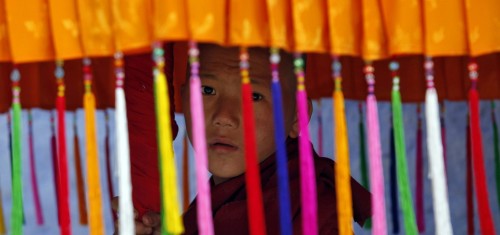


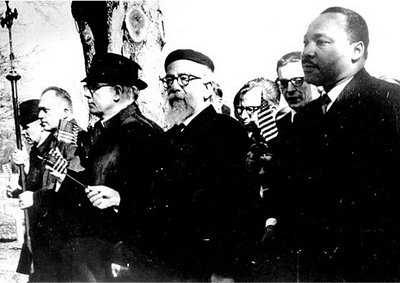
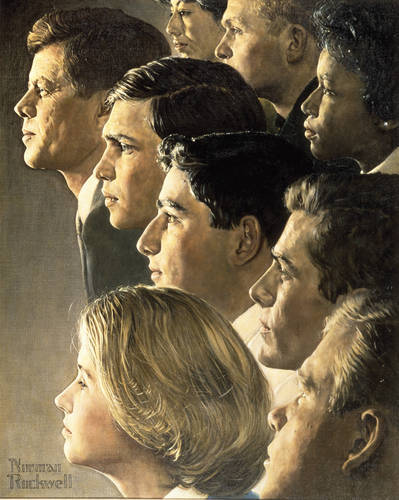 I hope that more people take the notion of socially conscious “paladinism” seriously as we move farther down the road of personal responsibility when it comes to finance, education, spirituality, and so forth. When a tragedy like the one this month in Tucson serves more to separate the “parts” of our democracy rather than unite us, I fear that there is nowhere near enough “praying with our legs” happening in our great nation.
I hope that more people take the notion of socially conscious “paladinism” seriously as we move farther down the road of personal responsibility when it comes to finance, education, spirituality, and so forth. When a tragedy like the one this month in Tucson serves more to separate the “parts” of our democracy rather than unite us, I fear that there is nowhere near enough “praying with our legs” happening in our great nation.





 In his book Memories, Dreams and Reflections (which happens to be one of my very favorite books, ever) Jung suggested that his experience in New Mexico made him aware of his imprisonment “in the cultural consciousness of the white man.” As a man living in Chicago this week, I have to say that I feel somewhat imprisoned by some cultural consciousness as well.
In his book Memories, Dreams and Reflections (which happens to be one of my very favorite books, ever) Jung suggested that his experience in New Mexico made him aware of his imprisonment “in the cultural consciousness of the white man.” As a man living in Chicago this week, I have to say that I feel somewhat imprisoned by some cultural consciousness as well.  For the past several days, client after client has walked into my office and somewhere during the hour uttered the words, “
For the past several days, client after client has walked into my office and somewhere during the hour uttered the words, “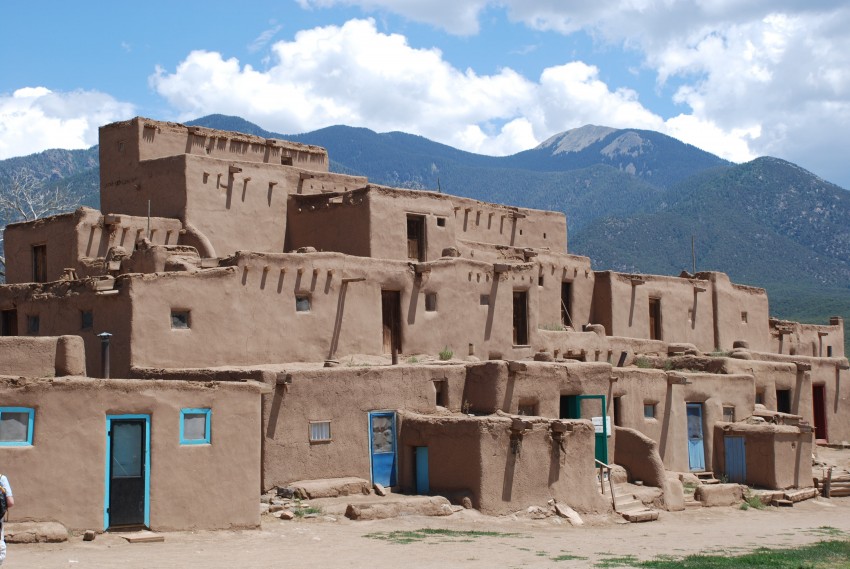 The Taos Pueblo is separated into two tiny, mud cities by a modest river that weaves down into the valley beneath a great mountain. One of the details that Dr. Jung found particularly significant was the fact that the pueblo’s natural separation by the river had created an ever so slight variation between the two sides of the village. In fact, when it came to engaging in rituals, hunting and even sporting events, the gentle designation of the two distinct teams created a friendly rivalry and competition that served as a projection for interpersonal tensions and aggression. Jung noted that as a result of this sometimes heated team rivalry, there was considerably less aggression, hostility and strife in people’s homes and in the whole tribal community.
The Taos Pueblo is separated into two tiny, mud cities by a modest river that weaves down into the valley beneath a great mountain. One of the details that Dr. Jung found particularly significant was the fact that the pueblo’s natural separation by the river had created an ever so slight variation between the two sides of the village. In fact, when it came to engaging in rituals, hunting and even sporting events, the gentle designation of the two distinct teams created a friendly rivalry and competition that served as a projection for interpersonal tensions and aggression. Jung noted that as a result of this sometimes heated team rivalry, there was considerably less aggression, hostility and strife in people’s homes and in the whole tribal community. 

 Jeffrey Sumber is changing the world, one relationship at a time. For over two decades, Jeffrey has worked to understand the human experience from as many angles as possible. As a successful psychotherapist, marriage counselor, and life coach, Jeffrey has worked with thousands of clients who strive to live their best lives.
Jeffrey Sumber is changing the world, one relationship at a time. For over two decades, Jeffrey has worked to understand the human experience from as many angles as possible. As a successful psychotherapist, marriage counselor, and life coach, Jeffrey has worked with thousands of clients who strive to live their best lives.
Recent Comments